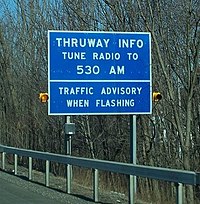
Photo from wikipedia
In recent years, the role of tourism-related workers in regional volcanic disaster prevention has increased in Japan. The coexistence of tourism with disaster mitigation is important in keeping residents and… Click to show full abstract
In recent years, the role of tourism-related workers in regional volcanic disaster prevention has increased in Japan. The coexistence of tourism with disaster mitigation is important in keeping residents and visitors safe and in protecting livelihoods. This paper analyzes responses from tourists and tourism workers on their receipt of volcanic hazard information. Awareness of this hazard is developing in the tourism industry. Information of expert such as members of the JMA and volcanologists at universities and institutes were considered more reliable sources of information than others. However, a direct access to experts’ information was not considered easy. Respondents’ recognition of the past hazards of Zao Volcano and future hazard factors were almost accurate. Some tourism-related workers hoped to obtain volcanic hazard information from the experts to provide to their customers. Many respondents had excessive expectations for predicting an eruption. A few were able to accept the uncertainties associated with volcano warnings and status reports. Experts need to provide adequate explanations of scientific evidence and the associated scientific uncertainties before society can readily accept eruption warnings. Furthermore, in an emergency, it is necessary to make available accurate information from specialized agencies and experts, and promptly provide them to tourism companies.
Journal Title: Journal of Disaster Research
Year Published: 2018
Link to full text (if available)
Share on Social Media: Sign Up to like & get
recommendations!